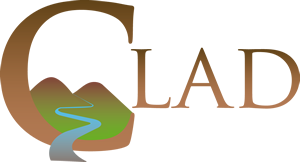
CLAD is a knowledge exchange (KE) project hosted by the Universities of Glasgow (School of Geographical & Earth Sciences) and Stirling (School of Biological & Environmental Sciences). CLAD promotes improved understanding and management of carbon losses from terrestrial environments via catchment drainage systems. Stakeholders include regulators, developers, consultants and equipment suppliers. CLAD began 2009 as a 3 year NERC-funded knowledge exchange project and remains active in this area but on a smaller scale.
There is currently a significant gap in scoping and environmental impact assessments on the effect of peatland disturbance of organic rich soils e.g. peatlands. This knowledge exchange project will:
 Improve dialogue between groups interested in peatland functioning and management.
Improve dialogue between groups interested in peatland functioning and management. Disseminate understanding for monitoring carbon export and water quality in fluvial systems.
Disseminate understanding for monitoring carbon export and water quality in fluvial systems.
 Develop best practise carbon loss mitigation measures for peatland environments.
Develop best practise carbon loss mitigation measures for peatland environments.

OBJECTIVES
We have identified the need for an improved understanding of the importance of aquatic C loss to catchment drainage systems by stakeholders of upland environments. This Knowledge Exchange project aims to:
- share current understanding of the effect of human physical disturbance on aquatic carbon losses from carbon-rich landscapes with partners in industry, conservation and regulatory agencies, and related stakeholders. Also, to share the understanding that these losses can have significant impacts on the quality of receiving waters. Specific knowledge will include the functioning of carbon landscapes (and of catchment systems within them), the impacts of disturbance to peat soils on the aqueous fluxes of carbon and the downstream impacts on receiving waters and implications for maintaining good ecological and chemical status (sensu WFD) of surface waters. It is significant that an assessment of such impacts is currently missing from Environmental Impact Assessments with carbon water quality not presently included in the list of interests.
- emphasise the crucial importance of adequate monitoring of water quality using state-of-the -art field logging systems.
- provide industry and related stakeholders with new tools (intellectual and analytical) to assess whether, and how, adverse impacts of developments within peat-dominated catchments on receiving waters can be minimised. These include both the possibility of introducing mitigating measures and of proposing changes to site location. This represents a significant gap in current scoping exercises or environmental impact assessments.

